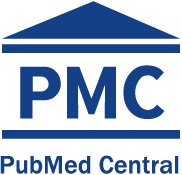Overcoming the hurdle of implementation: putting human resources for health tools into action
DOI:
https://doi.org/10.17843/rpmesp.2011.282.499Keywords:
Human resources, Health personnel, Health policyAbstract
The global human resources for health (HRH) challenge remains persistent. In 2006, the World Health Report identified 57 crisis countries, and, despite increased attention and investment in strengthening the workforce, those countries are still in crisis. While chronic HRH problems still exist, progress has been made in some countries where innovative programs have been implemented that show promise, or specific initiatives have been scaled up. yet, these have not been substantive enough to move countries out of the “crisis” category. While many countries have HRH plans, this paper asserts that a major reason countries remain in crisis is the lack of sustained implementation to achieve concrete workforce strengthening results. This is true despite the fact that there have been major investments in a broad range of tools and resources aimed to support implementation of plans and initiatives.Given this picture, the paper states that it is critical for HRH leaders to take action to ensure that already available tools are disseminated, adapted and used to foster effective implementation at the country level. The paper highlights four such tools as examples that can be used to build implementation capacity, and acknowledges more like them. Having highlighted these tools, the paper concludes by offering recommendations as to how to support more results-oriented implementation. These recommendations are organized around three linked components: 1) providing sufficient advocacy to leadership at the national level to mobilize and commit them to implementation action, 2) assembling and managing the requisite assets (including the institutional arrangements, people and money) into a coherent and powerful whole, and 3) using accountability as a foundational tool to assess progress in implementation, track key indicators, celebrate achieving key milestones and identify problems when indicators are not achieved.Downloads
Download data is not yet available.
Published
2011-06-30
Issue
Section
Symposium
How to Cite
1.
McCaffery JA. Overcoming the hurdle of implementation: putting human resources for health tools into action. Rev Peru Med Exp Salud Publica [Internet]. 2011 Jun. 30 [cited 2025 Jul. 29];28(2). Available from: https://rpmesp.ins.gob.pe/index.php/rpmesp/article/view/499





























